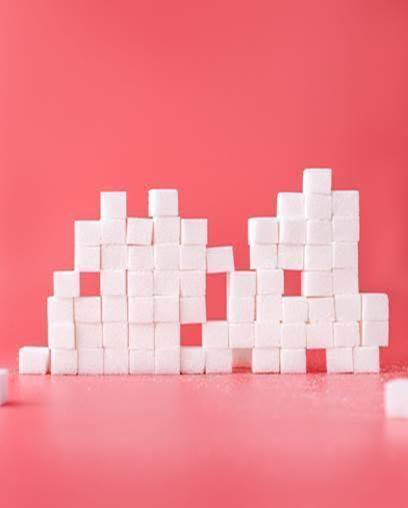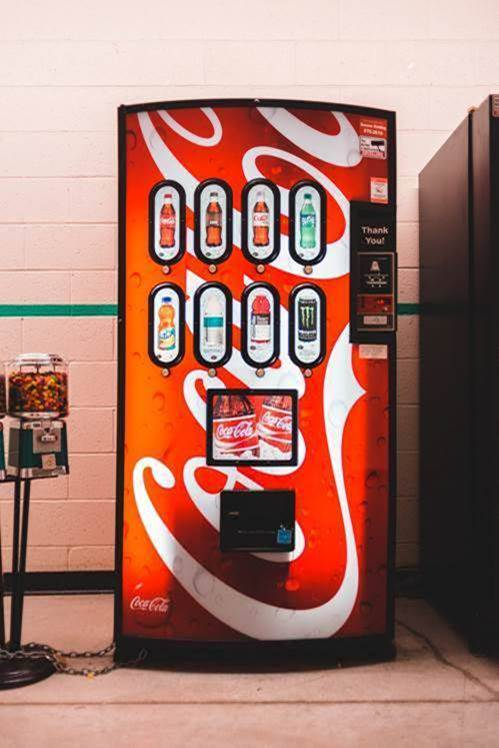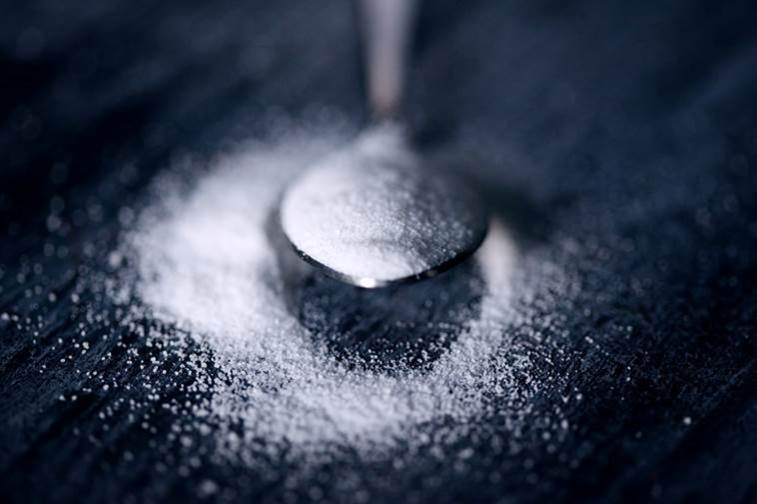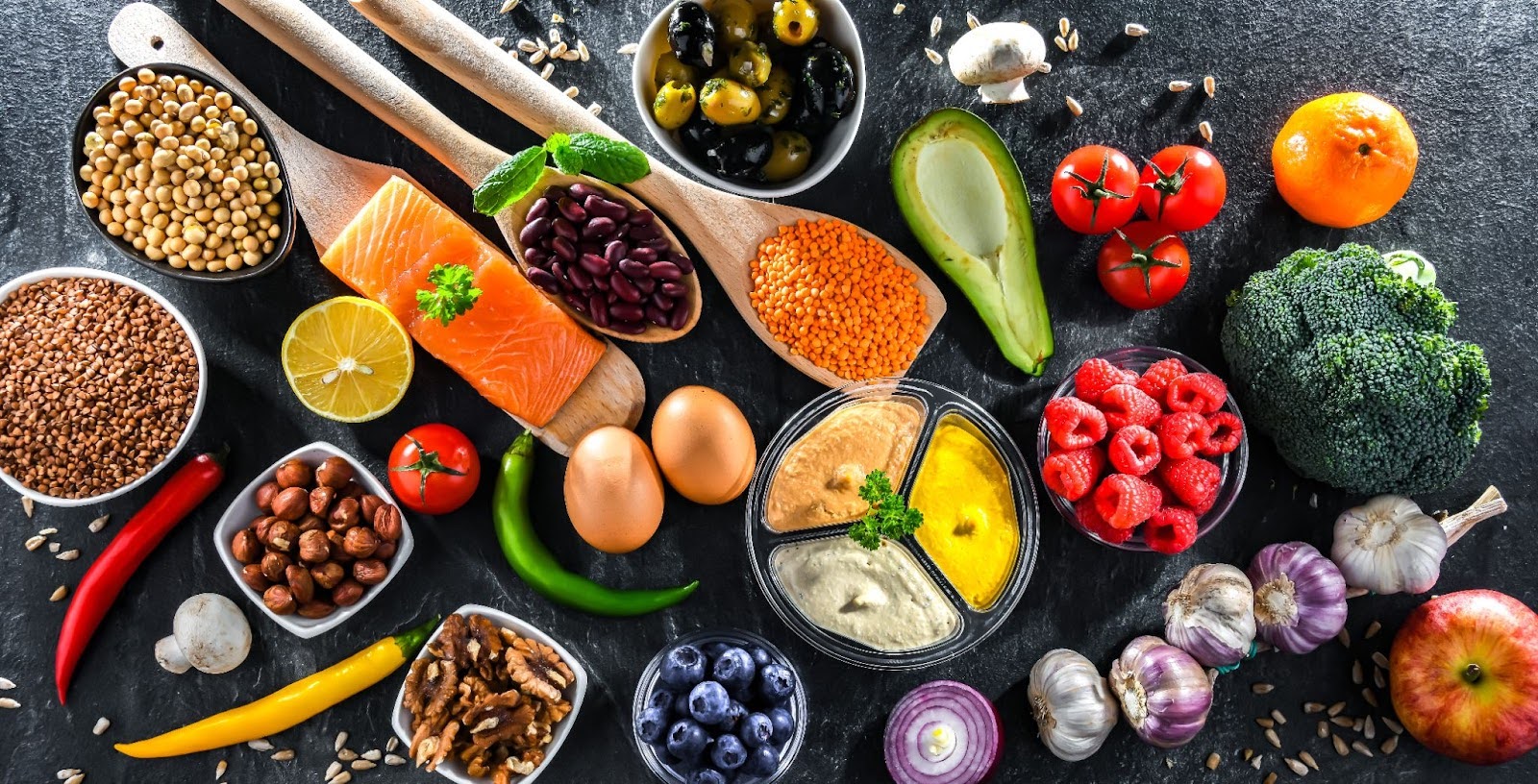
I thought it was time to bring up the sugar talk again. Added sugars, natural sugars, anxiety around sugar, and if there really is sugar “addiction”. And I know there has been a lot of baking going on these home-filled days, so I will touch upon some creative ways to add sweetness without adding too much added sugar (so some healthy sugar alternatives). I love baking and do it often so I get it. 🙂
Sugar is Not the Devil

I want to make sure I get across that American culture is far too obsessed with fad dieting, and demonizing sugar aligns with that. How many times have I said fad diets don’t work? Often, right? That 95% failure rate is still alive. Recall the psychology of eating. If we ban something, we want it more. On a molecular level. That alone can increase our sugar cravings and “addiction.” We must not have an all-or-nothing thinking when it comes to food. That will absolutely backfire.
Now… to go over some hum drum, but necessary, recommendations to know so you can be armed with education about helping your body get through this lifetime.
Sugar Recommendations
High added sugar intake has been linked to everything from dental cavities to obesity to Type 2 diabetes to heart disease to other health conditions, many of which last into adulthood. That’s MAJOR.
Added sugars sweeten a food and although they add calories, they offer virtually no nutrition. On an ingredient label, sugar may appear under many names, more than 50 actually.
The 2015 Dietary Guidelines for Americans recommends limiting added sugars to no more than 10 percent of daily calorie needs. That’s about 12 teaspoons (48 grams of added sugar) on a 2,000-calorie diet. But for kids, especially little kids, who may only need 1,200 to 1,400 calories per day, it’s even less. For them, added sugars should not top 7 or 8 teaspoons (30 to 35 grams of added sugar).
But, rather than obsessing over grams and teaspoons, focus on reducing added sugars by limiting products that contain them. So… like I always say, take a look at the ingredients and nutrient label first.
Common Sources of Added Sugars:
Some sources of added sugars are easy to spot, such as:
- Sugary beverages (soda, fruit punch, sweet coffee, and energy drinks)
- Sugary cereal
- Candy and chocolates
- Flavored yogurt
- Baked goods such as cakes, pastries, and cookies
However, added sugars can hide in some surprising places, including:
- Whole-grain cereals and granola
- Instant oatmeal
- Frozen foods
- Granola bars, protein bars, and cereal bars
- Pasta sauce
- Dried fruit, canned fruit, applesauce, and fruit juices
- Baby food
- Barbecue sauce, ketchup, salad dressing, and other condiments
Natural Sugar Alternatives:
So be aware that these have an impact on our blood sugar just as cane sugar does. BUT, they offer some nutrients (though nominal) and don’t have scary added things in it like bleach. My preference are dates and figs in smoothies and baking.
- Dates
- Figs
- Raw honey
- Blackstrap Molasses
- Maple Syrup
- Coconut Sugar
Tips for Reducing Added Sugars:
It’s not just about how to eat less sugar. It’s about how to eat less added sugar:
- The first step in reducing added sugar intake takes place in the grocery store. Scan labels for added sweeteners (ingredients and label).
- Try using naturally sweet fruits and vegetables when baking and cooking. Examples include bananas, figs, dates, sweet potatoes, and apples. You can add a mashed banana to your oatmeal in the morning and microwave it for a minute, which adds sweetness.
- For beverages, choose plain water most often along with pasture raised milk, unsweetened tea, and sparkling water. Add fruit and herbs to water for extra flavor. I love adding fresh mint! You also can reduce added sugar intake at home by cooking from scratch. By making your own granola, and homemade baked treats, you are in control of the ingredients used. As your family’s taste buds adjust, gradually use less and less of the sweetened varieties.
- Make a healthy relationship with food the overall focus instead of a completely sugar-free diet. Encourage positive associations with foods such as fruits and vegetables by playing up their good qualities and fresh taste, and save the super sweet stuff for special occasions.
Sugar-sweetened beverages:

Soft drinks are a prime source of extra calories that can contribute to weight gain and provide no nutritional benefits. Studies indicate that liquid carbohydrates such as sugar-sweetened beverages are less filling than the solid forms, causing people to continue to feel hungry after drinking them despite their high caloric value. If you can swap out your sugar-sweetened beverages with bubbly flavored water you can be drastically reducing sugar intake.
- The average can of sugar-sweetened soda or fruit punch provides about 150 calories, almost all of them from sugar; usually high-fructose corn syrup. That’s the equivalent of 10 teaspoons of table sugar.
- If you were to drink just one can of a sugar-sweetened soft drink every day, and not cut back on calories elsewhere, you could gain up to 15 pounds over three years.
Baking:

Let’s look at some sugar replacements in baking. I will keep it simple. Try:
- Erythritol: A sugar alcohol that will not have digestive issues like the other sugar alcohols (phew), has a very low glycemic index, and very low calories and carbs.
- Monk Fruit Extract (that may have erythritol in it – most do): zero calories, carbs, and no glycemic load and actually offers some nutrients.
Sugar Addiction:

When people claim sugar lights up the same regions of the brain as cocaine or other drugs, that is not fully true. In the studies done on rats, that only happens under forced deprivation, aka dieting. Under deprivation and restriction, a person’s reward response is heightened. There is an enhanced reward response under conditions of restriction and deprivation either mentally or physically. Food and drugs do share neural pathways, but the brain does not develop a physiological dependency on food substances. So basically this food addiction thing has been blown up and not valid science.
The bottom line: Sugar is not a health-promoting compound. Eating a lot of sugar doesn’t make our bodies better, stronger, healthier, or more functional. It doesn’t contain any vitamins, minerals, phytonutrients, and fiber. And it can be easy to over-consume (especially in sweetened drinks and other highly-processed foods).
But it’s not singularly the devil either. We’re all allowed some discretionary calories, including sugar. So be aware, educated, and strategic. 🙂
-Miriam MPH, RD, CPT, Certified Intuitive Eating Counselor
Studio SWEAT Dietitian
Resources:
- Jessica Cording, MS, RD, CDN, is a registered dietitian and writer in New York City.
- https://health.clevelandclinic.org/are-artificial-sweeteners-ok-for-kids/
- https://www.hsph.harvard.edu/nutritionsource/carbohydrates/added-sugar-in-the-diet/
- https://www.menshealth.com/nutrition/a26764557/is-sugar-addiction-real/
- https://www.thereallife-rd.com/2018/03/sugar-addiction/









Comments - 0